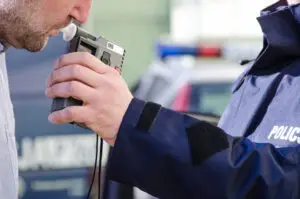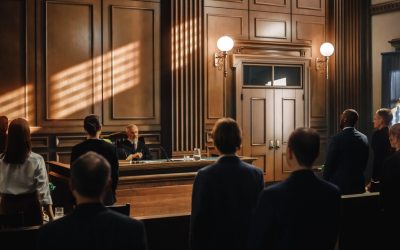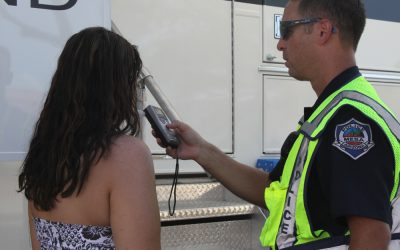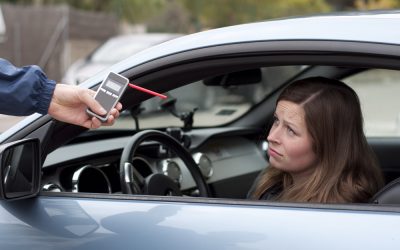
California wants to keep its drivers and pedestrians safe from impaired drivers. To promote this agenda, California law enforcement uses DUI checkpoints to stop and assess motorists and remove drunk drivers from the roads. Sometimes, drivers do not want to stop at a checkpoint or comply with an officer’s instructions to submit to a field sobriety test.
While drivers may not have to submit to certain checkpoint procedures if they have not been arrested for driving under the influence (DUI), refusing to stop at the checkpoint can have legal consequences.
You can learn more from a Los Angeles DUI lawyer, but in the meantime, let’s take a look at the rules.
The Purpose of DUI Checkpoints
DUI checkpoints, also called sobriety checkpoints, are traffic stops that allow law enforcement officers to identify and arrest intoxicated drivers. The sobriety checkpoint inspection stops are intended to take impaired drivers off the roads to keep drivers and pedestrians safe.
They are also used as a deterrent. If a person fears being “caught” when driving under the influence of alcohol or drugs, they may avoid getting behind the wheel.
Are California DUI Checkpoints Legal?
DUI checkpoints are legal under California state law and the United States Constitution. California’s Supreme Court recognizes DUI checkpoints as “administrative inspections” comparable to airport security screenings.
That said, the checkpoints have to meet specific standards. If they do not, drivers who are stopped and arrested at the checkpoint may have grounds to challenge that arrest. If you have questions about the legality of your field sobriety test, contact a defense attorney in Los Angeles right away.
Law enforcement agencies must act according to the following rules when implementing DUI checkpoints:
- Supervising officers make all operational decisions and oversee all checkpoints
- Police officers must use a neutral standard for stopping motorists. For example, stops cannot be based on race, gender, or car model. Instead, a neutral system, such as stopping every third or fourth car, must be followed
- The checkpoint location must be reasonable. It has to be in an area known for drunk driving accidents or arrests
- Safety precautions, such as flashing lights, warning signs, and law enforcement officers must be visible to drivers well before the checkpoint. Additionally, the changed road layout or traffic pattern must be clearly marked
- The time of the checkpoint implementation and its duration must reflect “good judgment” by the supervising officer. Checkpoints should be as least intrusive to drivers as possible
- Motorists should not be stopped for more time than is needed to for law enforcement to ask questions and check for signs of impairment
- Sufficient Warning: The roadblocks must be advertised to the public through news outlets and law enforcement websites prior to its implementation
You Can Turn Around to Avoid a DUI Checkpoint
Drivers who want to avoid a DUI checkpoint can turn their car around and avoid the roadblock as long the maneuver is safe and does not put others on the road in danger. Since law enforcement usually provides ample warning of the checkpoint, drivers should have the opportunity to avoid it safely.
Officers may not stop a motorist simply because the motorist chose to avoid the checkpoint. However, officers can stop the driver for other reasons.
For example, if the driver violates traffic laws while turning around, has a vehicle defect such as a broken tail light, or demonstrates behaviors consistent with intoxication, they can be pulled over.
What Kinds of Tests Might Be Administered?
At DUI checkpoints, police officers may administer several tests to determine if a driver is under the influence of alcohol or drugs:
- Field Sobriety Tests (FSTs): These are a series of physical coordination tests like walking heel-to-toe in a straight line, standing on one leg, and turning slowly in a circle. Officers observe for signs of impairment.
- Preliminary Alcohol Screening (PAS) Test: Drivers blow into a portable breathalyzer to obtain a preliminary blood alcohol concentration reading. A reading over the legal limit of 0.08% leads to further testing.
- Standardized Field Sobriety Test (SFST): This full battery of tests includes the Horizontal Gaze Nystagmus (HGN) test to check eye movements, the one-leg stand, and walk and turn. It provides measures of impairment.
- Breathalyzer Test: At the station, an Intoxilyzer breath test yields an evidentiary breath alcohol concentration reading used for prosecution.
- Blood or Urine Test: If a driver refuses or fails the Breathalyzer, a court order can require a blood or urine sample to test for alcohol and/or drugs in the system.
Through a combination of observations and standardized tests, officers aim to determine if a driver shows signs of being under the influence of alcoholic beverages over the legal limits. Different tests are administered as impairment suspicion increases.
Accuracy of Field Sobriety Tests Can Vary
Law enforcement officers will put you through a battery of field sobriety tests before they take your blood alcohol concentration. This will aid them in deciding if they have sufficient grounds to arrest you for driving under the influence.
The reliability of these field sobriety tests is frequently questioned, much as that of various blood alcohol tests. Though they are designed for the good of public safety, to put it bluntly, they can be inaccurate.
- The Horizontal Gaze Nystagmus Test had the highest accuracy rating of 77% according to the National Highway Traffic Safety Administration (NHTSA).
- The One Leg Stand Test was rated at 65% accuracy
- The Walk and Turn Test was rated at 68%.
This shows that field sobriety exercises aren’t always reliable. There are a lot of reasons why these field sobriety exercises aren’t as reliable as blood alcohol testing. Among these are:
- You might not have the best balance, coordination, or physical fitness
- The tasks were above your current abilities.
- It is possible that the officer may not follow the correct screening procedure or wrongly administer a test.
- Concern about being subjected to a humiliating public test
- Possible underlying health issues that the officer does not know about
- You might be on bumpy pavement or dangerously close to a major highway
- Conditions of the environment – such as rainy weather or night time
If a field sobriety test was used to falsely accuse you of driving under the influence, you may have a solid defense case. A criminal defense lawyer can assist you in constructing a defense that will increase the likelihood of a lighter sentence or even dismissal of the charges.
Can Drivers Refuse a DUI Checkpoint in California?
All drivers must stop and submit to checkpoints according to California Vehicle Code 2814.2(a).
At the checkpoint, an officer will ask the driver to roll down the car window and ask to see their license and registration. Then, the officer will attempt to engage the driver in conversation as a way of assessing potential impairment.
Drivers who do not stop and comply with an officer’s instructions can be charged with obstruction of justice or DUI if they show signs of impairment.
If drivers do not show signs of impairment, they must be permitted to move along without additional delay. Officers can only ask drivers to pull over for further evaluation if there is probable cause or reasonable suspicion of impairment.
Can Drivers Refuse DUI Tests at a Sobriety Check Station?
If an officer suspects impairment and asks the driver to exit the vehicle, drivers can decline to take field sobriety or pre-arrest blood alcohol content (BAC) or cheek swab tests. Such tests are optional and can be refused without penalty.
This refusal, however, does not mean the driver cannot still be arrested for DUI based on other obvious signs and DUI indicators.
These other indicators may include:
- Smell of alcohol or marijuana
- Slurring words
- Demonstrating delayed or clumsy movements
- Having trouble answering basic questions
- Struggling to locate license and registration
- Drug paraphernalia visible in the car
- Having alcohol or drugs in plain sight in the vehicle
Keep in mind, though, that drivers who refuse post-arrest DUI breath tests or blood screens do face penalties, including a one-year driver’s license suspension.
Drivers can also choose not to allow officers to search their vehicles at checkpoints. While they must answer questions regarding their identification, drivers do not have to answer questions that may lead to self-incrimination. For example, if the officer asks if the driver has been drinking, the driver can choose not to answer.
Why Drivers Refuse to Stop
It is important to emphasize that drivers can turn around and avoid checkpoints if doing so is safe. However, once at a checkpoint, they cannot refuse to provide their license and registration, answer the officer’s questions, or pull over if instructed.
Some drivers may want to refuse the checkpoint because they are intoxicated. Others may have different reasons, such as not having their license with them or not having a valid license at all.
Even in these situations, drivers must stop at the checkpoint. While they may face penalties, according to California Vehicle Code 2814.2., they do not have to fear having their vehicles impounded immediately if their only unlawful behavior is driving without a valid license.
Understanding DUI Laws and Your Rights in California
Navigating the complexities of DUI (Driving Under the Influence) laws in California can be daunting, especially when faced with a DUI checkpoint. Understanding your rights and the legal implications of DUI charges is crucial for anyone driving in California.
This guide aims to demystify the DUI laws in California, providing clarity on what constitutes a DUI, the legal process following a DUI arrest, and how to best protect your rights.
Your Rights at a DUI Checkpoint
When encountering a DUI checkpoint in California, knowing your legal rights is important. While you must stop and comply with basic requests like showing your license and registration, you are not obligated to answer incriminating questions.
Knowing how to interact with law enforcement at these checkpoints can significantly impact the encounter’s outcome.
The DUI Arrest Process in California
Understanding the arrest process is vital if arrested for a DUI in California. This includes knowing the steps from the moment of arrest to booking and the role of chemical testing in determining your blood alcohol concentration (BAC). This section will guide you through the process, helping you understand what to expect and how to respond.
Legal Defenses Against DUI Charges
Facing DUI charges in California can be overwhelming, but several legal defenses are available. This section will explore common defenses like challenging the accuracy of BAC tests, questioning the legality of the traffic stop, and other strategies that can be employed to contest DUI charges.
Seeking Legal Assistance for DUI Charges
Navigating a DUI case requires understanding of the legal system. Here, we discuss the importance of seeking legal assistance, what to look for in a DUI attorney, and how professional legal advice can make a significant difference in your case.
Local Resources in Los Angeles
Knowing local resources is crucial if you’re in Los Angeles and facing DUI charges. Here’s a list to help you:
- Courthouses:
- Los Angeles Superior Court: 111 N Hill St, Los Angeles, CA 90012; Phone: (213) 974-5411; Website: lacourt.org
- Metropolitan Courthouse: 1945 S Hill St, Los Angeles, CA 90007; Phone: (213) 745-3201
- Police Stations:
- Los Angeles Police Department: 100 W 1st St, Los Angeles, CA 90012; Phone: (213) 486-1000; Website: lapdonline.org
- Central Community Police Station: 251 E 6th St, Los Angeles, CA 90014; Phone: (213) 486-6606
- Hospitals:
- Los Angeles County+USC Medical Center: 2051 Marengo St, Los Angeles, CA 90033; Phone: (323) 409-1000
- Ronald Reagan UCLA Medical Center: 757 Westwood Plaza, Los Angeles, CA 90095; Phone: (310) 825-911
These resources provide essential support and services for those dealing with DUI-related issues in Los Angeles. Remember, understanding your rights and seeking the right assistance are key steps in navigating DUI charges effectively.
Facing Charges for a DUI Checkpoint Arrest? We Are Here to Help
If you were arrested at a DUI checkpoint and are facing charges, contact us right away. Your criminal defense attorney will investigate the situation to determine whether officers acted within California law and upheld your rights.
Whatever your specific situation, you can count on the Los Angeles DUI Attorneys to give you the knowledgeable, experienced, and attentive legal representation you need to secure the best outcome possible.






